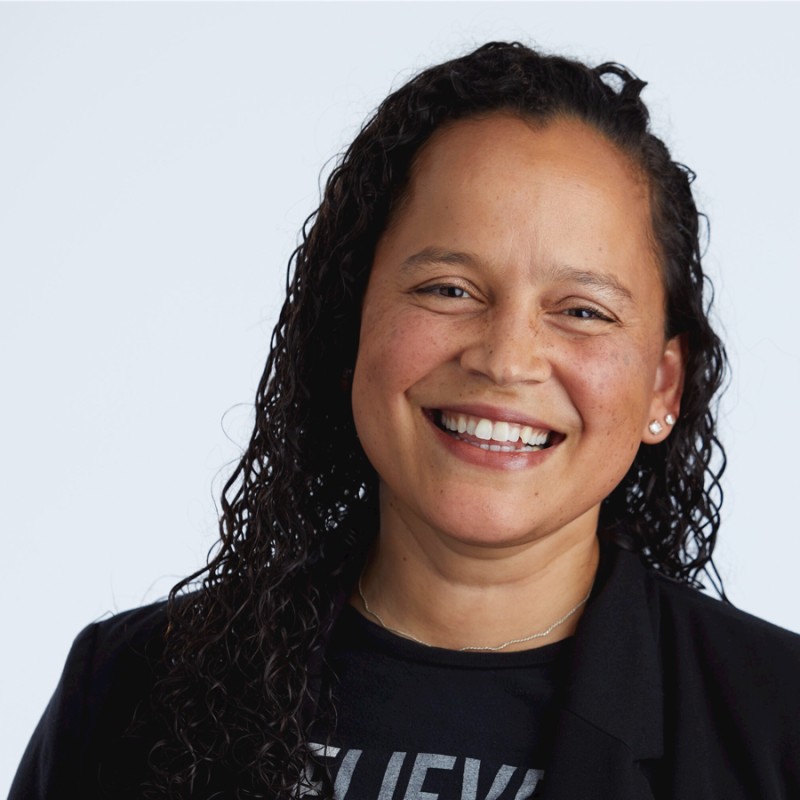
Are you a woman and ever wondered how you can get into the technology industry? Maybe you’ve asked how you can do more to thrive in your position and excel in the next leadership role? Or perhaps you just wanted to know how women in tech can achieve more?
Well, we’ve got you covered with 30 tips from 30 women working with or in the technology industry. From how to ace your interview through to how to find a solution to a new challenge, there are tips in here to help you with a wide range of questions and situations.
Only recently, The Guardian reported that only 17% of people in the tech specialist roles were women. For this reason, we wanted to give you a guide from people who walk the walk so you shouldn’t be scared, discouraged, intimated, or unsure of pursuing a career within the technology sector.
For this article we’ve asked 30 different women from various backgrounds with different titles who work in, recruit for, or primarily deal with clients in the technology industry to share tips from their experiences or opinions on what the industry needs to give you an idea of the roles available.
It includes heads of divisions, recruiters, people who are relatively new to their career in tech, and advisors to give a real mix of opinions and advice.
If you’re looking for an answer on how to excel or get your head through the door to a career within a certain aspect of technology, there’s advice in here that’s well worth reading. Who knows, it might be what leapfrogs you to your next career opportunity or give you a new idea for what you want to do with your career or business.
If you find any of these tips helpful, please reach out to the person to let them know via their LinkedIn or leave a comment. Additionally, let us know what you thought of the article by dropping us a comment and making sure you’re signed up to the newsletter to get more articles like this delivered directly to your inbox.
30 hot tips coming up

Kay Firth-Butterfield, Head of Artificial Intelligence and Machine Learning, World Economic Forum
There are a number of ways into working in AI. You may be a scientist programming AI. We NEED more women in that role because it will help to deal with the issue of bias. It will be hugely beneficial to have lots of diversity amongst the scientists working in AI.
Another would be as a policymaker, much advice is needed for governments about AI, what it is and how to use it. This is also needed amongst companies; in a survey, we did about knowledge of AI by Board members most had little or no knowledge. Another way is through looking at the benefits and problems of AI design, development, and use – this is usually called ethical or responsible AI.
In summary, what is needed is the diversity of the workforce in AI in all sectors including the approach from science to humanities. Such a diverse population in a company will also help it to succeed, look at problems in new ways and spot opportunities.

Alice Piterova, managing director, AI for Good UK
Being ok with not being normal, don’t try to fit into the job description and try new things even if you don’t think you have a natural talent in these areas. Also being ok with not being ok – in the time of COVID-19
–

Marisa Tschopp, Switzerland Ambassador, Women in AI; Researcher, Scip AG
For me, the most important advice was to do my “homework”. With homework I mean, finding out what is important to me, what are my values, my purpose, my talents. What legacy do I want to leave behind for my children? Being clear what I want, was the most important factor, in getting what I want.

Virginia Mijes Martin, Senior Consultant for Blockchain, Experty.io; Blockchain Consultant, Associació Blockchain Catalunya
The gender gap of women in technology is evident in the different profiles and no less leading positions of responsibility, increasingly necessary through movements, forums, community partnerships to strengthen the visibility of women in the technology sector.
We are also facing a historical moment where emerging technologies: Blockchain, AI, Big Data, IoT, Machine learning, they will all require new talent and not only at a technical level but in the field of business and other contribution profiles to society in order to integrate technologies into our personal and professional life.
Margarita Salas, RadiaJoy Perlman, Ada Lovelace, Hedy Lamarr, and Mitcher Baker are all examples of women who have contributed to the world historically and sometimes without the deserved recognition.
My experience over 25 years in the technology sector where I have participated leading business projects has always been in the minority of gender equality, perhaps this is a moment of one of the most important steps for a new stage of women in technology where they can enhance their talent and be benchmarks for junior talent thus contributing to a more equal future

Pujaa Rajan, Deep Learning Engineer, Node.io; Women Techmakers Ambassador, Google; Ambassador, Women in AI
Read voraciously. Reading will help you:
1. Decide what industries and technologies you are most interested in.
2. Learn from others’ experiences and avoid making the same mistakes.
3. Stay up-to-date as technology advances.

Phyllis Woodruff, VP Assurance Programs and Operations, Fiserv
I like to keep 3 things in mind at work:
1. You Matter: regardless of your role, you are doing something that is important to the business you are part of. That’s why they hired you. You are part of whatever they are building or delivering and you want to be part of their success.
2. Be Effective, Not Right: You don’t have to win every argument. You have a job to get done and sometimes you need to put aside your ego.
3. Find your Team Members’ Super Powers: Everyone has one, and when you can recognize someone’s strengths you can help them shine which helps everyone.
I recently was honored to be part of a panel on gender diversity. A young woman medical student shared her fears about entering the industry as a non-white and non-male. I was shattered. Here was this amazing, intelligent, compassionate soul who was multi-lingual and multi-cultural and had no idea of the strengths she possessed.

Inna Berkovich, Chief Information Officer, Emerging Technologies
My MBA degree may have opened the door to career advancement, but learning to work with different types of personalities is what kept me in executive positions.
When mentoring women who are interested in entering or progressing within this industry, one piece of advice I give is to learn from people you dislike. This may be a piece of unusual advice because, why would you learn from a colleague with whom you constantly have disagreements or differences in values? But, if you think about it, they are in their current position for a reason. They likely possess unique skills and perspectives that could be helpful to you in achieving your goals or avoiding mistakes. Shutting them off is an easy way out but you’re only limiting yourself by doing that.
The best advice I can give is to try to set aside your pride, ego, and any negative emotions. Listen to them, observe their actions, understand where they’re coming from, and learn what to do (and what not to do), whether you like them or not.

Ivana Bartoletti, Technical Director, Deloitte
The five most important things that I have learnt and that are most important to me are the following:
1. Having a mentor. Identify women you want to be in 5 years’ time and go and talk to them. Ask them to be a sounding board from time to time, and keep them posted on your progress.
2. Be yourself, all the time. No point trying to change, and being yourself is much more fun, too.
3. Know your stuff BUT avoid comparing with others. Only choose some role models as reference. Jargon is often a way to show off and keep us out.
4. Do not give an apology if you are convinced that you have done nothing wrong. This is so important to me.
5. Finally, and that is maybe because of my Italian upbringing, do work on your body language. Hold poses of confidence, use specific posture, gestures and even clothing that make you feel more confident.

Kerry Couldridge, Data Specialist, Morgan McKinley
I’ve been focusing a lot on D&I and women in tech recently, speaking to the women in my network as well as some big female players in the data market and from these conversations, my research and own observations are the following.
a) From a recruitment perspective, some clear differences in the way men and women (broadly speaking of course) approach the interview process has become clear. Namely, many women will tend to underestimate or downplay their abilities in selection processes. So to this, I would say women in Tech, whilst clearly a minority group, need to have a greater sense of confidence. Humility is important but ultimately if it doesn’t appear as though you believe in yourself, it’s going to be tough convincing the hiring managers. Take pride in your achievements and don’t be afraid to emphasise or get excited about your skillset and accolades.
b) Generally speaking, a piece of advice that has come up time and time again from various accomplished women in data is networking. Take initiative in making yourself known to those in the business and to key groups and individuals in the market. There are endless meetups and talks you can attend that will allow you to make connections with successful women in the field who will support you and contribute to achieving success in your field.
Behind every great women, is more great women!

Celine Thooris, Head of Artificial Intelligence and Robotics, Belfius Bank
If I were to give a piece of advice to a younger sister starting in the tech field I’d tell her the following:
– The tech industry is not so much about hard skills, it’s above all a human adventure. Embrace it as such.
– Be curious about everything and try to understand deeply what the person in front of you is telling. It sometimes requires more than just listening to words it’s about looking to the world with their glasses. You understand something/someone truly when you can make it yours.
– Innovation is a success when very diverse people manage to actually work together to deliver something above the mere addition of their hard skills. Try every day to make it happen and to link persons and things together.
– Be yourself, you don’t have to fit in any box.
– Don’t play it safe and take responsibility. Don’t make a decision that doesn’t fit with who you are.
– Find your way to learn (it can be writing, listening, drawing, getting your hands on…anything as long as it works for you).
– Find a place where you make the difference and add value.
– Have fun.

Anya Rumyantseva, Senior Data Scientist, Hitachi Vantara
Now, as competition and rate of innovation increases, with brands only lasting a fraction of what they did not that long ago, the war for talent to drive innovation is heating up. Despite this obvious demand for talent, stereotyping of tech workers is part of the problem of why women are underrepresented in the tech sector.
Just consider the rise and rise of the term “tech bro”. This stereotyping is absurd and can only be harmful to companies. One tip to all the women entering the tech sector is to be aware of this stereotyping and not to be pushed back by it.

Sakshi Mishra, Energy and AI Researcher, National Renewable Energy Laboratory, USA
Develop a “Growth Mindset”.
When we were children, developing a growth mindset required that teachers and mentors reward us for the ‘efforts’ and ‘hard work’ instead of the ‘results’.
Regardless of the mindset with which we were raised (growth vs. fixed), as adult women working in the tech industry, it is in our own hands to consciously develop a ‘growth mindset’ where we keep our minds open to exploring possibilities we thought were never under our reach. This means cultivating interest and learning fields that are not our core area of expertise.
As an example, if you are a hard-core programmer and have shied away from public-speaking for all these years, then run no-more. Embrace the discomfort and possibly a few failures by putting yourself out there for speaking opportunities. You will be surprised to see how many opportunities open up when you take this cross-disciplinary road of blending your core expertise with additional (and sometimes tangential) interests.
This way, having a “Growth Mindset” will help you overcome all internal-obstacles, saying “this is not your area-of-expertise” or “you are not good enough to tackle this”, that hold you back from fulfilling your dreams.

Marine Dunoguier, Director of Embedded Systems, Alcatraz AI
My biggest tip would be to try everything you want.
Stop questioning if you are able to do it and start thinking about how you are going to do it instead. Countless women censor themself without even trying projects they would love to work on.

Alicia Heraz, CEO and Chief Scientist at Emaww
Adapt to the new situation and remember that every single event in human history, whether it is pleasant or unpleasant, ends up becoming a thing of the past.
–
–

Gaby K. Slezák, Advisor for Emerging Learning Technologies, Your Virtual Trainer; Member of Women in AI.
Connect with the other women! You’re are not alone. Make yourself heard – don’t say “they didn’t let me”. If you want something, you have to do the work. Don’t wait to be “discovered”. Be visible. Speak up to your male colleagues to put your ideas out there. Believe in yourself and be sure: you will make mistakes. Everybody does. But men know: it’s not the end of the world! Don’t take it personally! Try again. Try stuff that scares you. Then you win.

Shilpa Rao, Head of AI Powered Strategic Intelligence, Tata Consultancy Services
Network- don’t just code. Invest time in collaborating, helping, and learning from others; apart from your team.
–

Laura Gemmell, Robotics and AI Researcher; Founder, Taught by Humans
My biggest tip is that you don’t get what you don’t ask for. Most successful women I know put themselves out there a lot more (for jobs, podcasts, grants, awards) and get rejected a lot. But they also get more opportunities and contacts that way. Eventually, you stop having to ask or apply so much. Another tip that I live by is just being nice and helpful.

Ekaterina Stambolieva, CEO, Nina Space
Ask questions and ask for support. I needed to close two companies and walk away from a good amount of grant money which I have won for my project in order to stop a toxic relationship with my former co-founders.
I needed support during these times and I was embarrassed to expose my vulnerability. The situation was so unbearable that I had no choice but to ask for help. Judgement-free help was received which lifted my spirits up.
Stay hungry for knowledge – regardless of the area of your choice. I am a woman in space tech – a field in which there are almost no women. I wanted to solve environmental problems by analysing satellite images so I got my hand dirty and learned how to do satellite image analysis. After that, I taught my team how to do it.
Hearing ‘No’ hurts a lot, and it will not stop hurting. Do not let a ‘No’ stop you from doing awesome things.

Angela Kim, Head of Analytics and AI, Teachers Health
Never underestimate your capabilities, if you are slow and cautious it’s ok. Remember the story of Tortoise and the Hare, you will get there as long as you don’t give up!
It’s ok to ask help, just remember to help others when you are on the other side of the fence.
Make sure you have mentors of males and females with all different walks of life – Diversity and Inclusion, you will be surprised to see how it enriches your life! Make sure you enjoy people along the day, at the end of the day, people become your asset!

Sarah Wyer, PhD Researcher, Durham University
As women, we are under-represented in tech, but this under-representation goes further.
We are women from all types of backgrounds, each background can provide difficulties in progressing in our careers. This could be ethnicity, social or educational background, age (or perceived age), disability, sexual orientation, gender identity, religion, or those with caring responsibilities.
These backgrounds can hold us back in various ways, while we experience these difficulties, it’s important to not become disheartened.
Tech needs you, we need diverse teams to produce the tech that serves our society, and without your lived experiences informing the development of this tech, it will not be effective. Value your background, let it strengthen you, and use it, you may be further forward than you think.

Joanna Goodman, Tech Journalist for Evolve the Law; IT columnist for the Law Society Gazette; Author of Robots in Law: How Artificial Intelligence is Transforming Legal Services
Don’t ever be afraid to ask questions, especially technical ones. Don’t be afraid of looking foolish as some men like to make technology obtuse. It’s important to understand, so always ask: How does it work? What does it do? Why do you need AI to do that? Does it do X? Why doesn’t it do Y? What is special/unique about this? What is its potential?

Katie Gibbs, Founding Partner, Emergence
Don’t worry if you’re not technical and want a career in tech – coding isn’t the only way in! Consider how you can apply your transferable skills, as the teams I’ve worked with on AI projects often require more non-technical people than technical, from Project Managers, Business Analysts, UX designers, and Service Designers.
Resilience is key – there will be moments when you feel overwhelmed in a male-dominated industry and other times when you feel on top of the world after a win. Be confident in the fact that you bring something new and different to the team, which will help everyone to excel.
Learn as much as you can from everyone you work with – picking up skills from the talented people you work with is a great way to broaden your understanding of the tech industry and how best to work with different team members. Over time you become an expert in many skills, which will make you an invaluable member of the team.

Rosalind Madge, Senior Recruitment Consultant, Fraud and Financial Crime Analytics, Harnham
Over the past few years, we’ve seen businesses become increasingly aware of the benefits of a diverse workforce. Unfortunately, there’s still a gap between the number of women entering the world of Data and those leading it. Our Diversity Report found that while they make up 35% of entry-level positions, women only make up 16% of Head Ofs/Directors.
Businesses know that they are falling short here so, in order to take advantage of this awareness, I would recommend growing your network and engaging with others in the Data community as much as possible. Yes, other women, but importantly anyone you can learn from. Who you know will continue to play the most important role in how far you can get.
And for businesses looking to hire more women; double-check your job adverts for gender-biased language and make sure that you promoting a diverse range of benefits upfront in order to appeal to the broadest candidate pool possible.

Maria Crosas Batista, Product Owner of B2C Chatbots, Nestle
One of the most important things when implementing machine learning (or any other AI techniques) is to identify a particular challenge you want to solve and understand it.
Usually, you will not be able to tackle multiple problems and excel in all of these. Machine learning techniques are very good at identifying problems that can be easily automated and can be scaled.
Equally important is to speak the same language as the Business, marketers, or any client that lacks a technical background. As a very trendy area, it has been said that everything can be solved with AI. Therefore, it is crucial to communicate what can be done and, more important, what cannot be done.
It is important to have a minimum knowledge of the main AI techniques are been used. For instance, if you want to work with virtual assistants or chatbots you need to understand what is Natural Language Processing and how it works.
Seek for the examples that tackle the same problem you have and don’t reinvent the wheel. You might want to use open-sourced programs or models and then fine-tune it to your challenge.
Have some online classes on Coursera and learn from Andrew NG, the platform’s founder, and his 1-second rule.
Update your strategy with the learnings you are gathering. Stay flexible and enhance it over time based on your fails and successes.

Katie Silver, Tech Journalist, BBC News (World)
I try to use tech to make my life better and more efficient. Spend a little bit of time learning the tech to save time in the long haul. Use a VPN for Netflix. Invest in a good keyboard and mouse, especially in these WFH times. Apple Pay – it’s amazing. No need to take a wallet and much easier tapping on and off. Electric toothbrush – you won’t look back. Don’t get a surface. I made that mistake – it’s neither a computer nor a tablet. Get both – you’re worth it!

Noelle Silver, Vice President for Digital Technology, NPR; Founder, AI Leadership Institute
As you begin to do work that you are proud of, document it. Create a blog, podcast, YouTube channel or LinkedIn newsletter that can showcase your learnings, opinions, and journey.
This will be the foundation of establishing your personal brand which will allow you to achieve success, get new opportunities, and curate a career that is aligned with your values and what you most love to do.
Don’t have a job that includes work you are proud of? Identify the intersection between your values and technology and document those topics and ideas you care about.
Create the career you want, don’t settle for the one you have if it doesn’t bring you joy and help you bring your values, passions, and skills to the world.

Alison Greenberg, Co-founder and CEO, aflow LLC
Professional organizations offer exponential ways to get your name out and learn from the experiences of others.
By joining the global conversational AI organization Women in Voice—and eventually co-founding its New York City chapter—I met other women from around the world who were experiencing the same questions about salaries, process, and growth in a nascent industry.
Networks of women can be particularly strong in a field like AI, where we are the minority. Use these networks to share best practices, ask questions you might not feel comfortable posing to direct colleagues, celebrate your own wins, and applaud those of others.
While it may seem like a big “extracurricular” commitment, the upshot of getting to know new contacts through conferences, panels, and even informal get-togethers can yield both financial and personal opportunities. Ultimately, it’s the human connection and sense of camaraderie that bears the greatest reward.

Parul Kaul-Green, Head of NEXT Lab Europe, AXA
It is my view that the most important characteristics for building and growing a career in technology is retaining intellectual curiosity and having a growth mindset.
What I mean by this is that paradigms of science and technology shift, frequently. If you question what you see, learn from differing perspectives and not be afraid to have an opinion that is different from those around you, you will make a great contribution to your work and to the society.
I would also encourage to share your expertise. You will have far greater influence and impact in your workplace if you are perceived as a generous teacher.

Vivienne Winborne, Director of Communications, Alphalake Ai
I have three pieces of advice for women wanting to work in tech.
Firstly, don’t be intimidated. The majority of people I have encountered are incredibly supportive and inclusive.
Secondly, find your voice. I think in any industry and any career there is a real knack in learning to be unfailingly professional but firm, diplomatic but direct. You need to trust your knowledge, your expertise, and your contribution. And never stop reading, listening and learning so you can grow and evolve.
Finally, get out there on social media. It is such an excellent tool for building your network, learning from industry professionals and keeping up-to-date with your competitors.

Rachel Yager, Evangelist and advisory on Global Financial Innovation, World Wide Web Consortium W3; CEO, FortuneTimes Group and Web Innovation Center
When it comes to AI, it’s the “artificial” aspect that will carry us far and wide. AI is not a replacement for human beings. It’s an augmentation and expansion of our limited physical realm.
If we think AI is all about mimicking human intelligence, we are on the wrong path.
At the dawn of the new normal of the pandemic, machine intelligence and cybernetics will emerge as essential tools in navigating difficult decisions and performing dangerous tasks.
I urge women in technology to speak up, shape up, and shake up the status quo of AI applications. How do we use AI for financial inclusion? What about using cybernetics to monitors community health and climate change?
We are not lacking AI techniques. What we need more than ever is the creative use of artificial intelligence.


